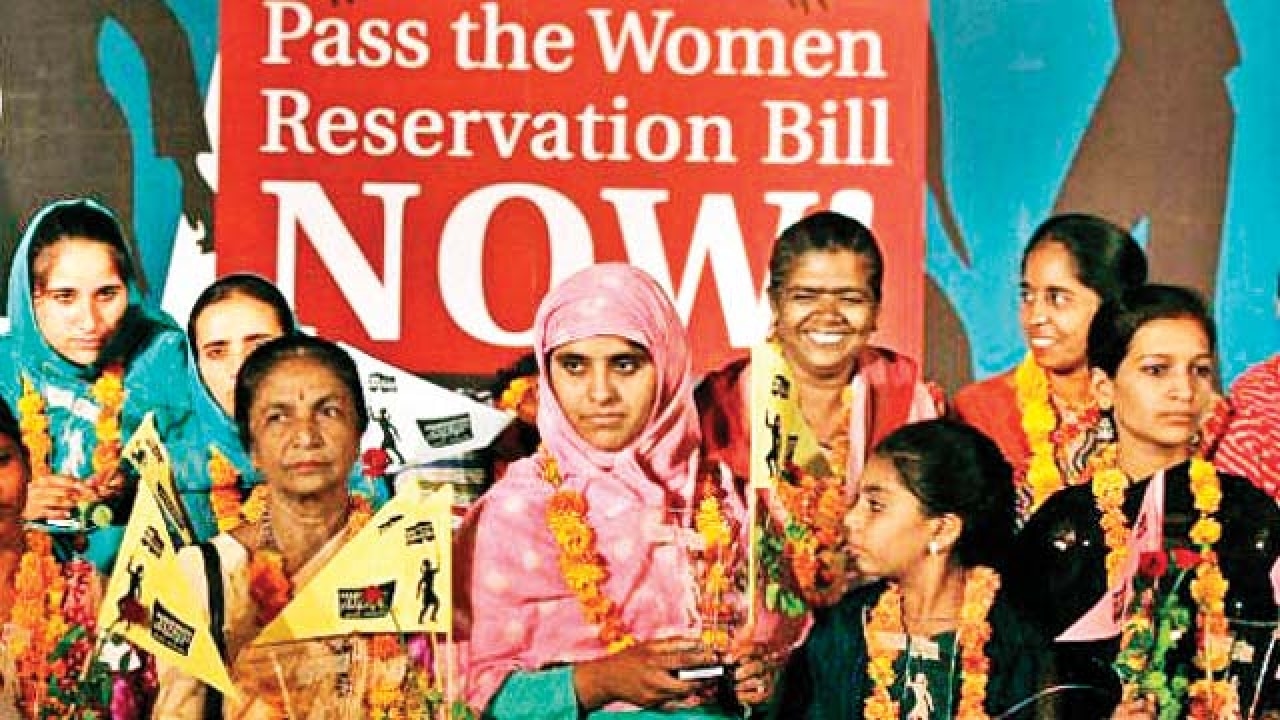
The three day National Women’s Parliament at Amaravati saw a renewal of the demand for 33 per cent women’s reservation in Parliament and Legislative Assemblies and the NDA government sending a strong message that it is in favour of the move. On Friday, Union minister Venkaiah Naidu informed the gathering that women’s reservation in Parliament and Legislative Assembles was on “Prime Minister Narendra Modi’s mind and the day is not is far when Parliament will pass the Bill providing women is reservation through consensus”. However, Naidu also went on to add, that the passage of the Women’s Reservation Bill would have to wait till the ruling National Democratic Alliance at the Centre got a “majority in the Rajya Sabha”.
After raising hopes with one sentence, Naidu brought them crashing down with his next sentence. A majority for the NDA in the Rajya Sabha may take some more years to materialise and Naidu’s statement raises the question about why the government cannot make common cause with like-minded parties in the Opposition, as it did to pass the GST Bill. The Women’s Reservation Bill has done the rounds of Parliament multiple times since 1996 when the United Front government of HD Deve Gowda introduced it in Parliament. Another aborted attempted followed under the Vajpayee government in 1998. Subsequently, the UPA government made two attempts in 2008 and 2010.
During each of these attempts, the stumbling blocks were the socialist parties of the Hindi heartland like the Samajwadi Party, Rashtriya Janata Dal and the Janata Dal (United), whose lawmakers even made attempts to physically stop the tabling of the Bill. Sharad Yadav’s infamous statement asking whether “short-haired women can claim to represent our women” represented the world view of these parties, which fear that the patriarchal basis of their societies would be imperilled by the rise of women politicians. UPA chairperson Sonia Gandhi, a votary of the Bill, blinked in the face of the strongarm tactics of these parties. But PM Modi should not make the same mistake. He has an opportunity to call the bluff on the pro-women policies that the socialist leaders of Bihar and UP like Nitish Kumar and Akhilesh Yadav claim to espouse.
There is no paucity of political parties in India who are open supporters of the legislation. The Congress, the Left parties, the two Dravidian parties, and the Telugu Desam Party are certain to back the government on the Bill and would offer adequate numbers for a two-third majority in both houses of Parliament to pass a constitutional amendment. Just 11 per cent of Lok Sabha members are women, though they account for 48.5 per cent of the population. In a country like the UK, 36 per cent of Conservative MPs and 52 per cent of Labour MPs in the House of Commons are women. In India, social structures prevent many women from taking a more active part in the political life of the country and this is reflected in the Lok Sabha numbers. Only affirmative action can correct this, and the Women’s Reservation Bill deserves to be passed without any more delay.